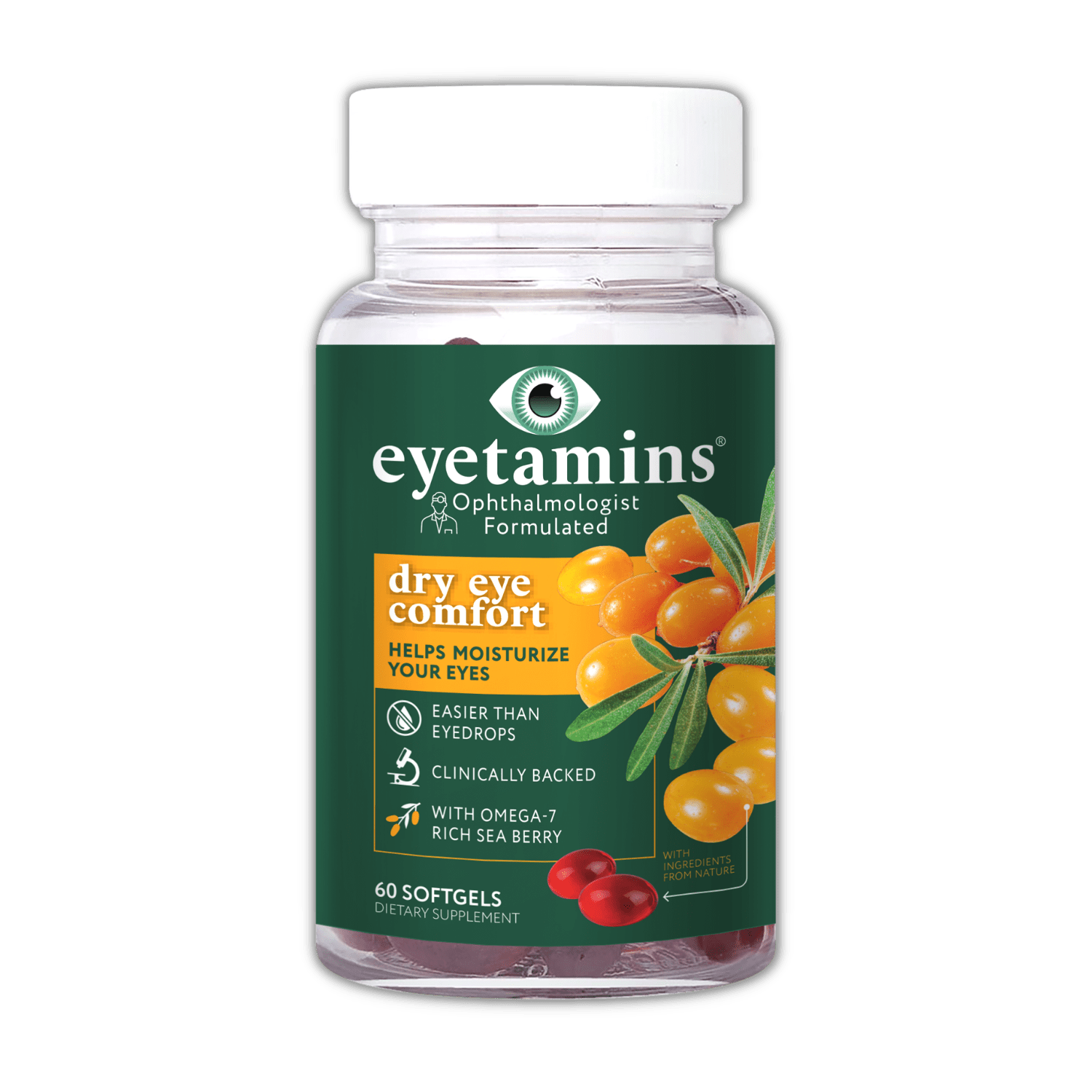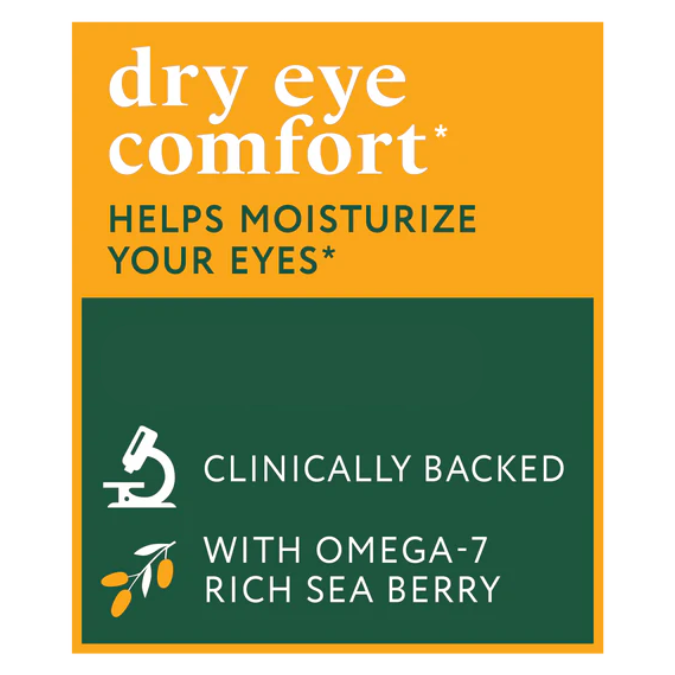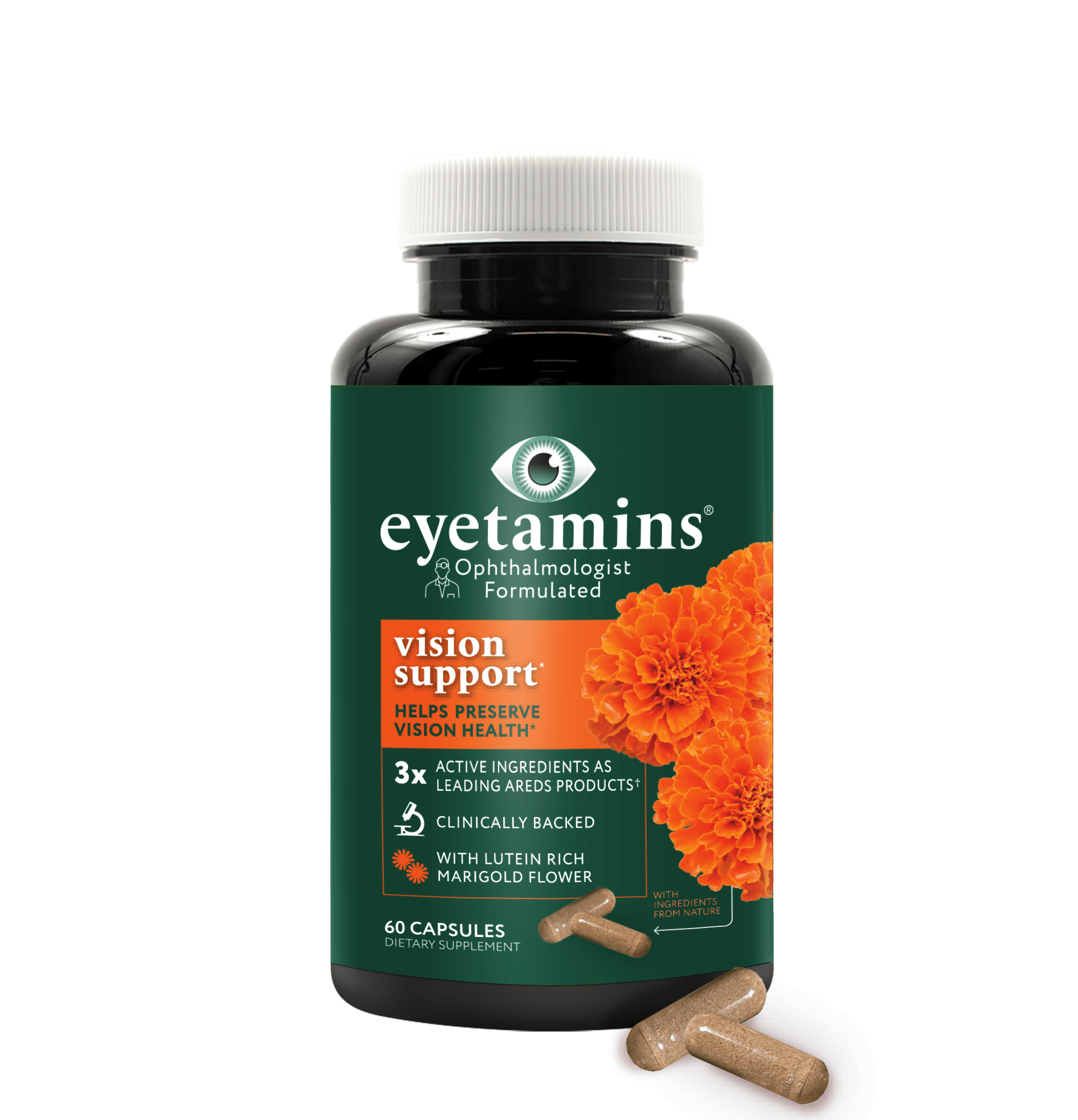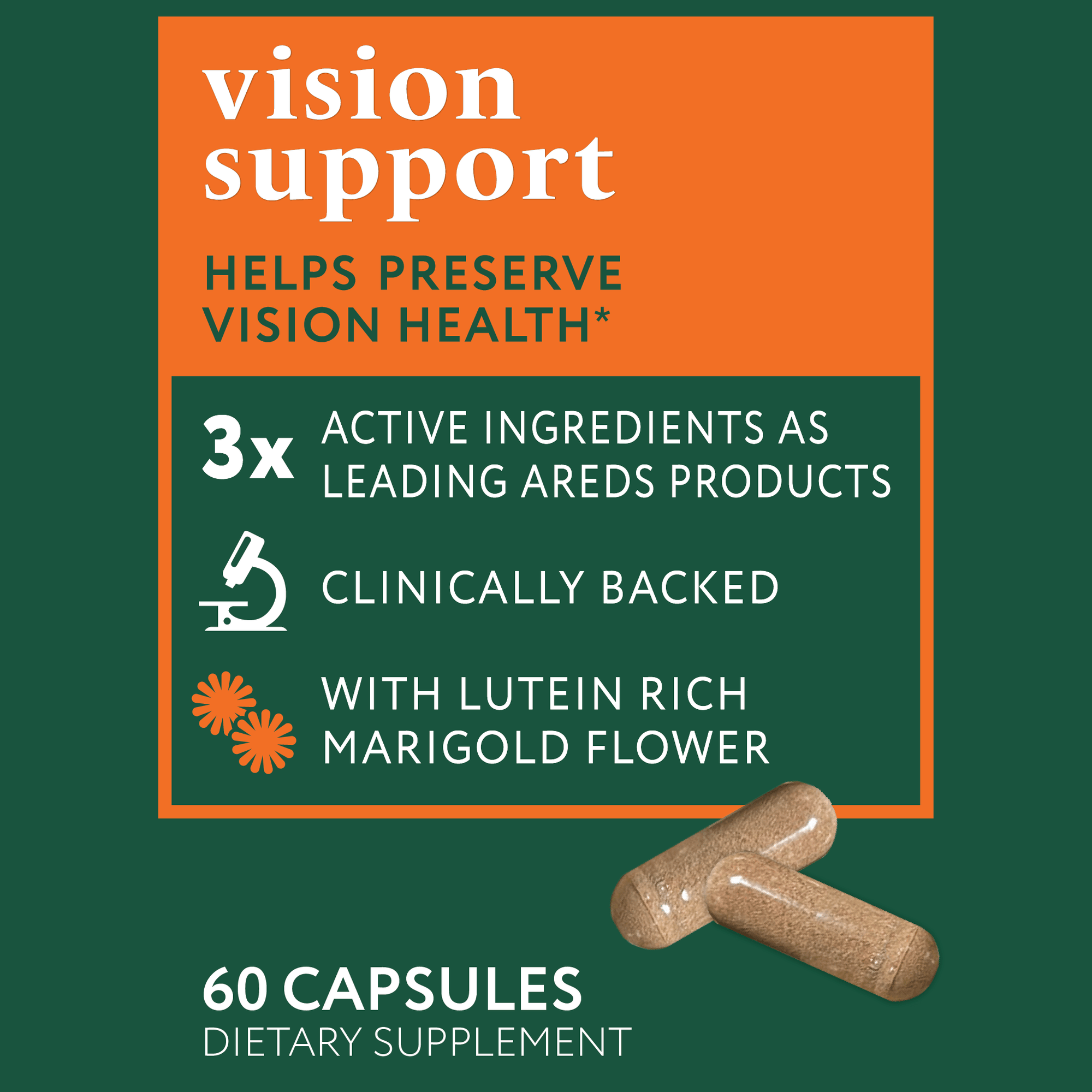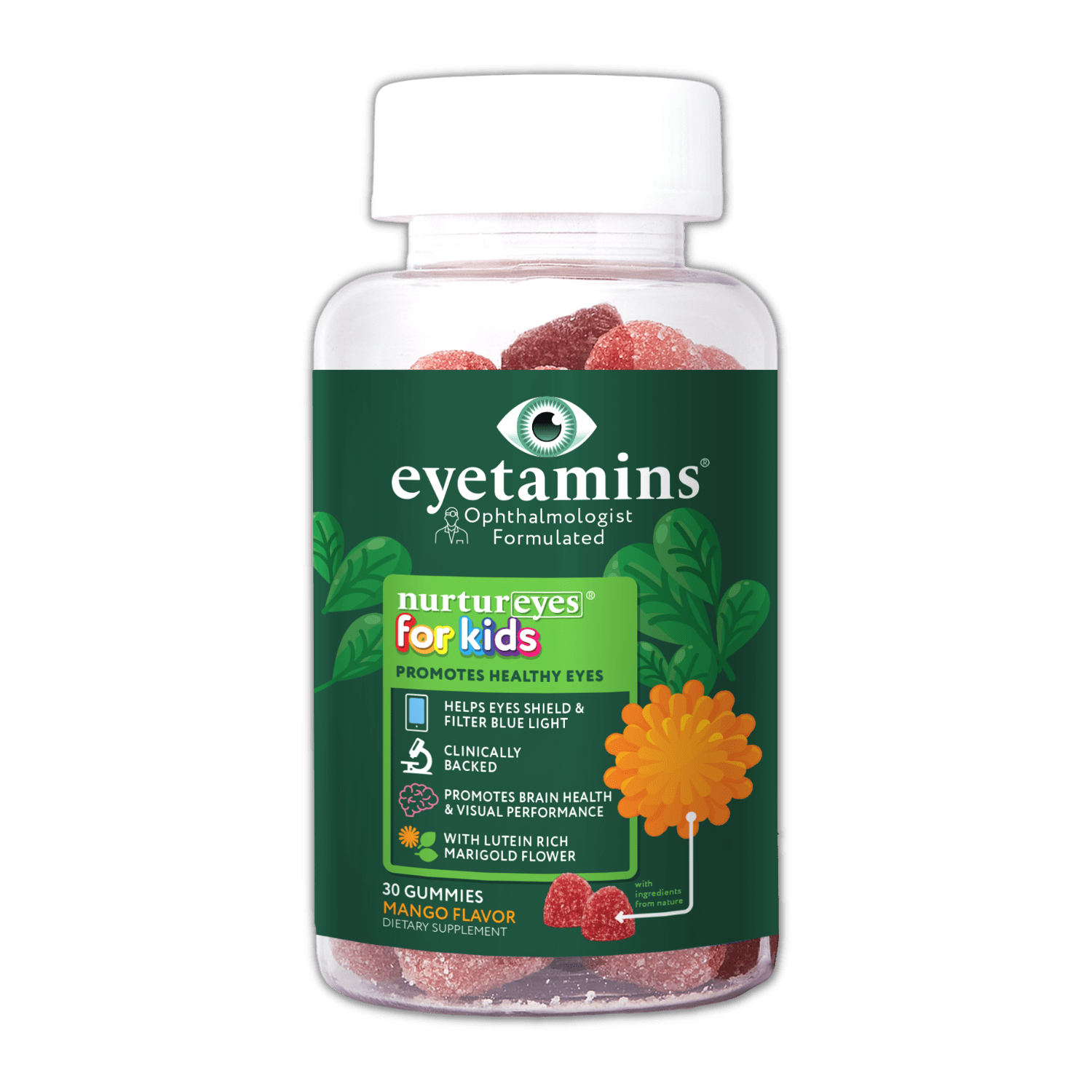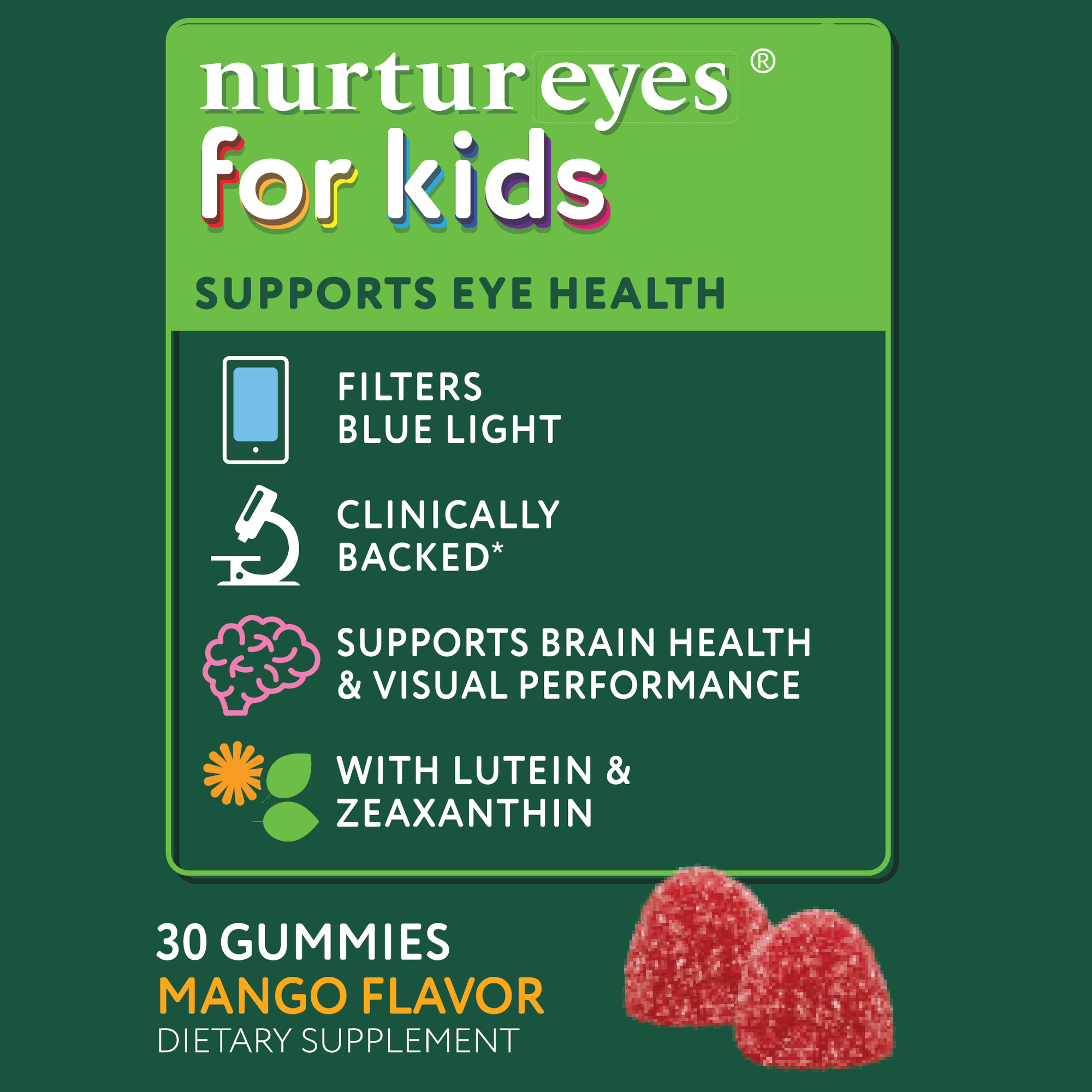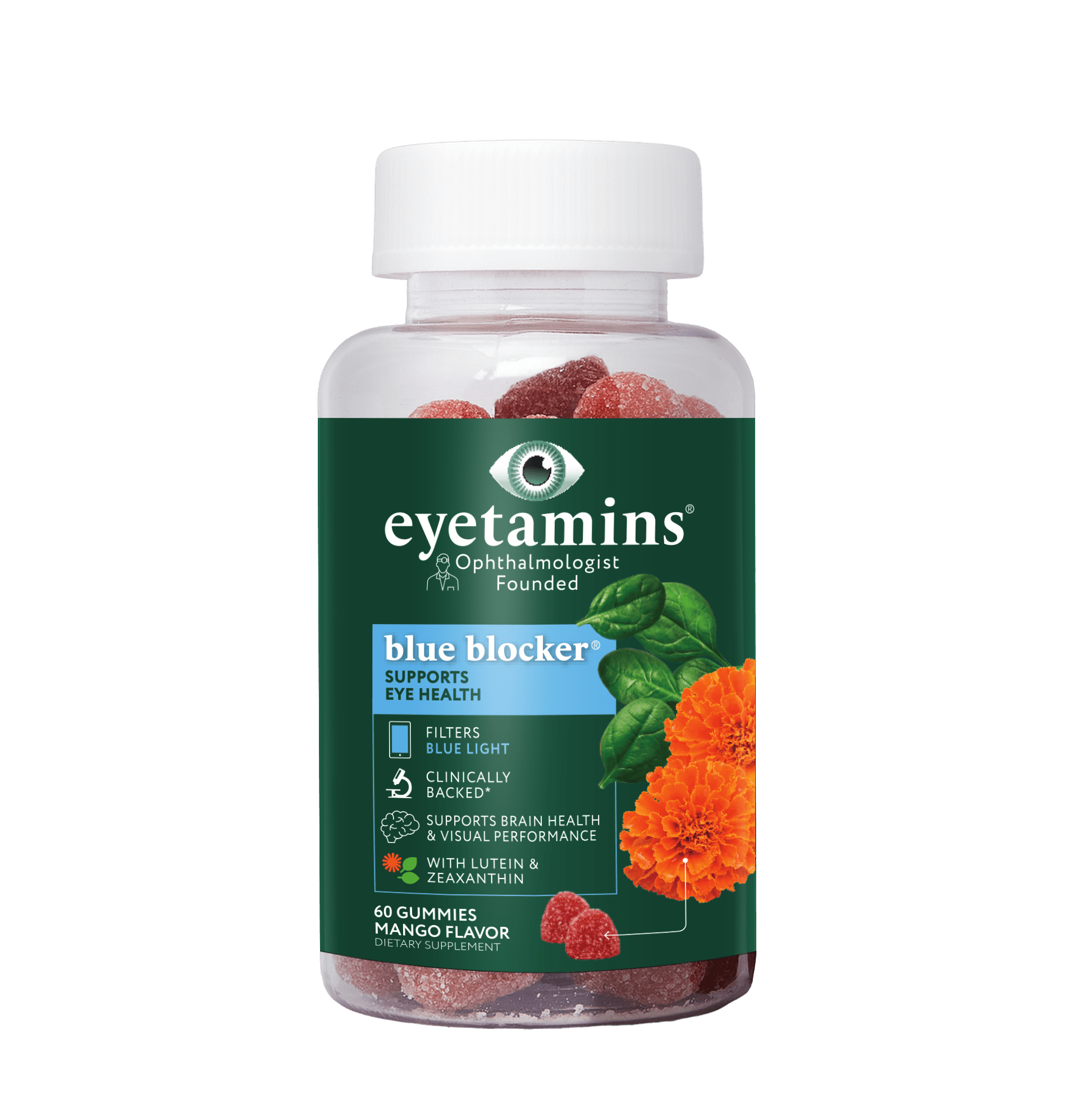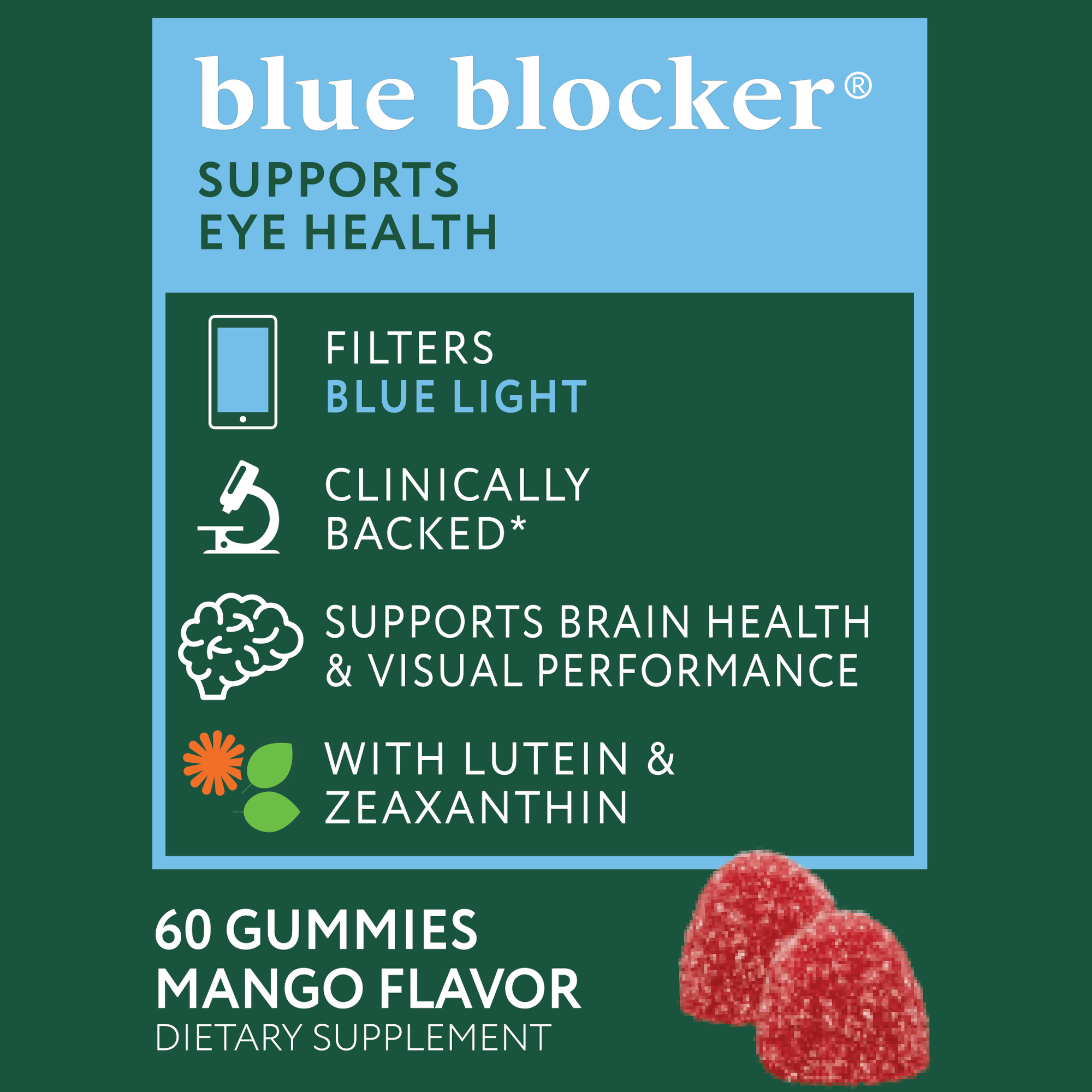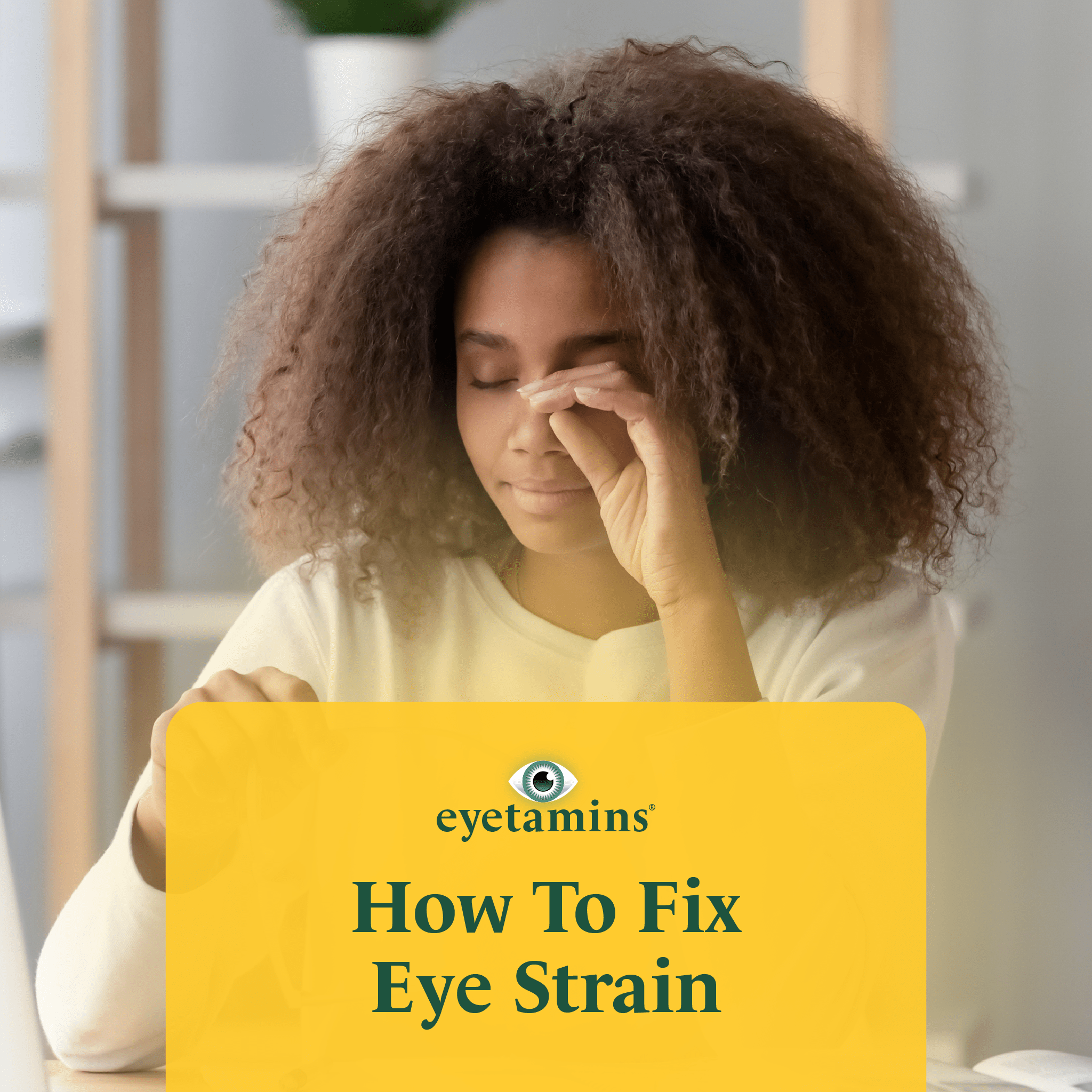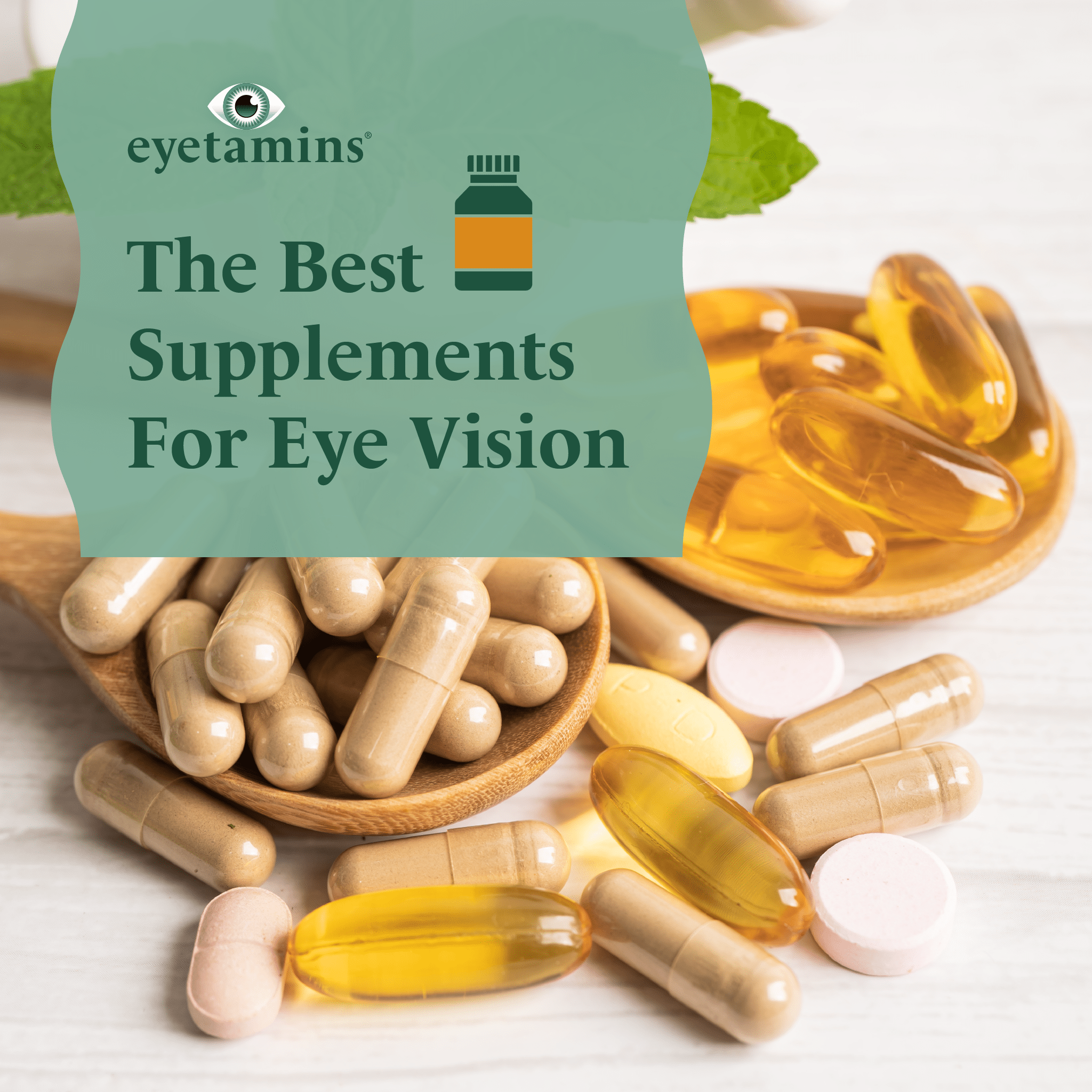· By Dr. Kaushal M. Kulkarni, M.D.
How To Fix Eye Strain
EYE STRAIN CAUSES
With the average American on a screen for 8-10 hours per day, many people are now searching for answers on how to fix eye strain.Given how hard our eyes are working every day to keep up, it’s no wonder they get tired and strained. We depend on our vision for almost every task throughout the day, whether it be reading, walking, driving, watching TV, texting, or scrolling through our phones.
Our goal at Eyetamins is to help you with your vision all along the way.
If you’re worried about eye strain, then keep reading.

TIPS ON HOW TO FIX EYE STRAIN (GIVE THEM A BREAK)
We have some tips on how to fix eye strain.One of the easiest ways to fix it is to limit your time in front of a screen. Whether you are reading a lot of material for hours at a time without taking a break or working for hours a day on a project using your laptop, your eyes are overworked.
We’re not suggesting that you refrain from using a device altogether. We are saying that you can help them by taking breaks.
Eye vitamins for health are another option that we will talk about in this article.In the meantime, there are several ways you can give your eyes a break.
You can stop what you are doing, get up, and do some stretching. This will benefit your neck, shoulders, arms and legs. If you don’t want to stop working, doctors advise to close your eyelids for 15 to 20 seconds to allow them to rest. You can also look away from the computer screen for the same amount of time.
People also find relief from their stressed vision by blinking rapidly for a few seconds. Blinking accomplishes two things. Because you blink less when you are looking at a computer screen, blinking acts to refresh and refocus your sight, and gives you a break. Also, blinking helps to re-moisturize your eyes, which means they are less likely to feel dry. You can remind yourself to blink by setting a reminder on your computer.

WHAT CAUSES EYE STRAIN?
The way we use our vision in the modern world has evolved rapidly, and it means we’re much more exposed to the most common eye strain causes.In the olden days, your job wouldn’t have been typing into a computer all day. Instead, it may have been pitching hay, or sowing seeds with a horse and plow. Perhaps you would have worked in the home churning butter, sewing quilts, or cooking for your family. You might have had a bookkeeping job, where you tallied numbers in a book.
However, times have changed, and many people’s jobs now include long hours in front of a screen. Luckily, even with all of that screentime, there are certain nutrients that can help people to see a great improvement in their eyesight.
While many people are glad they get to work inside in an office job, all of that screen time makes it easy to suffer from this type of strain.
Many Americans are in front of one screen or another between eight and ten hours every day. All of this time in front of a screen means that your vision is working overtime to process images without a break. This is hard on our eyesight, because the human eyeball was not designed for hour after hour staring at a bright screen. After those long hours of staring at a screen, your poor eyes need a break.
It’s hard to know how to fix eye strain if you are unsure what the problem is. There are some symptoms of eye strain you can look for the next time you are sitting in front of your computer for hours at a time.
When you sit down at your computer today, pay attention to your vision:
- Does it sometimes get blurry?
- Are your eyes or head aching after a long bout of screen time?
- Do they feel tired?
While many people are glad they get to work inside in an office job, all of that screen time makes it easy to suffer from this type of strain. Many Americans are in front of one screen or another between eight and ten hours every day. All of this time in front of a screen means that your vision is working overtime to process images without a break. This is hard on our eyesight, because the human eyeball was not designed for hour after hour staring at a bright screen. After those long hours of staring at a screen, your poor eyesight needs a break.
SYMPTOMS OF EYE STRAIN
Scientists know that some people are more prone to eye strain than others. However, most Americans experience some form of ocular problems from time to time.Not only can eye problemsmake you uncomfortable, they can also interfere with the work that you’re doing, which may work to slow down your productivity. You can become more fatigued and have problems keeping your mind focused on your work. You might also notice that when you aren’t working in front of a computer, or when you take a break, you feel better.
Of course, everyone would feel better if we didn’t have to work at a computer all day, but the modern world dictates we need to be in front of a screen.
OTHER EYE STRAIN SYMPTOMS
There are other symptoms of ocular strain as well:- You may notice your eyes feel sore and they may burn or itch as well
- Some people say that when they get tired, they feel as though their eyes are dusty or dirty
- You may produce more tears, or you may notice an intensely dry sensation
- Your head may hurt, and your eyes may blur
- Neck and shoulder pain are also common among overworked people who are getting a lot of screen time
- You may be sensitive to light as well

HOW TO TREAT EYE STRAIN
Eye supplements can help with this if they are sourced with pure ingredients.You may also want to think about getting drops for your eyes. There are lots of artificial tear products you can get over the counter. When they begin to feel dry, you can help by putting a drop in each of your eyes to lubricate them. Over the counter drops can be used as many as four times a day, so they are a good way to help you while you’re working.
You may also want to think about taking a supplement specifically for your eyes. There are vitamins such as bilberry extract, lutein, omega-3 fatty acids, and zeaxanthin that can help you recover from the daily strain you endure.
Researchers have found that people who are taking these supplements have fewer problems with visual discomfort (69% of participants), a one-quarter decrease in vision strain, and a nearly one-quarter decrease in headaches.
Taking vitamins that are good for your eyes every day helps your body recover from eye strain. These nutrients may also decrease the chances you will get macular degeneration or cataracts. They might even work to improve your eyesight.


